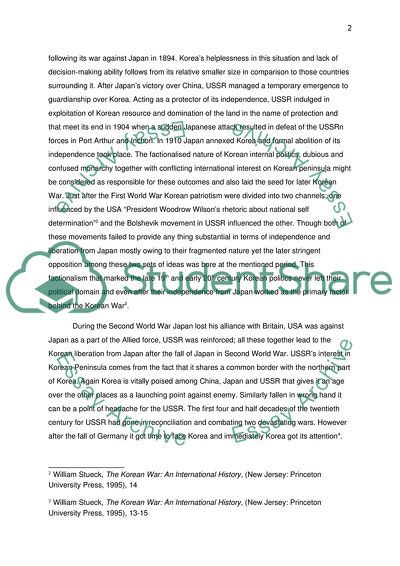Cite this document
(“The Causes of Korean War Research Paper Example | Topics and Well Written Essays - 4000 words”, n.d.)
The Causes of Korean War Research Paper Example | Topics and Well Written Essays - 4000 words. Retrieved from https://studentshare.org/history/1743962-what-cause-the-korean-war
The Causes of Korean War Research Paper Example | Topics and Well Written Essays - 4000 words. Retrieved from https://studentshare.org/history/1743962-what-cause-the-korean-war
(The Causes of Korean War Research Paper Example | Topics and Well Written Essays - 4000 Words)
The Causes of Korean War Research Paper Example | Topics and Well Written Essays - 4000 Words. https://studentshare.org/history/1743962-what-cause-the-korean-war.
The Causes of Korean War Research Paper Example | Topics and Well Written Essays - 4000 Words. https://studentshare.org/history/1743962-what-cause-the-korean-war.
“The Causes of Korean War Research Paper Example | Topics and Well Written Essays - 4000 Words”, n.d. https://studentshare.org/history/1743962-what-cause-the-korean-war.


